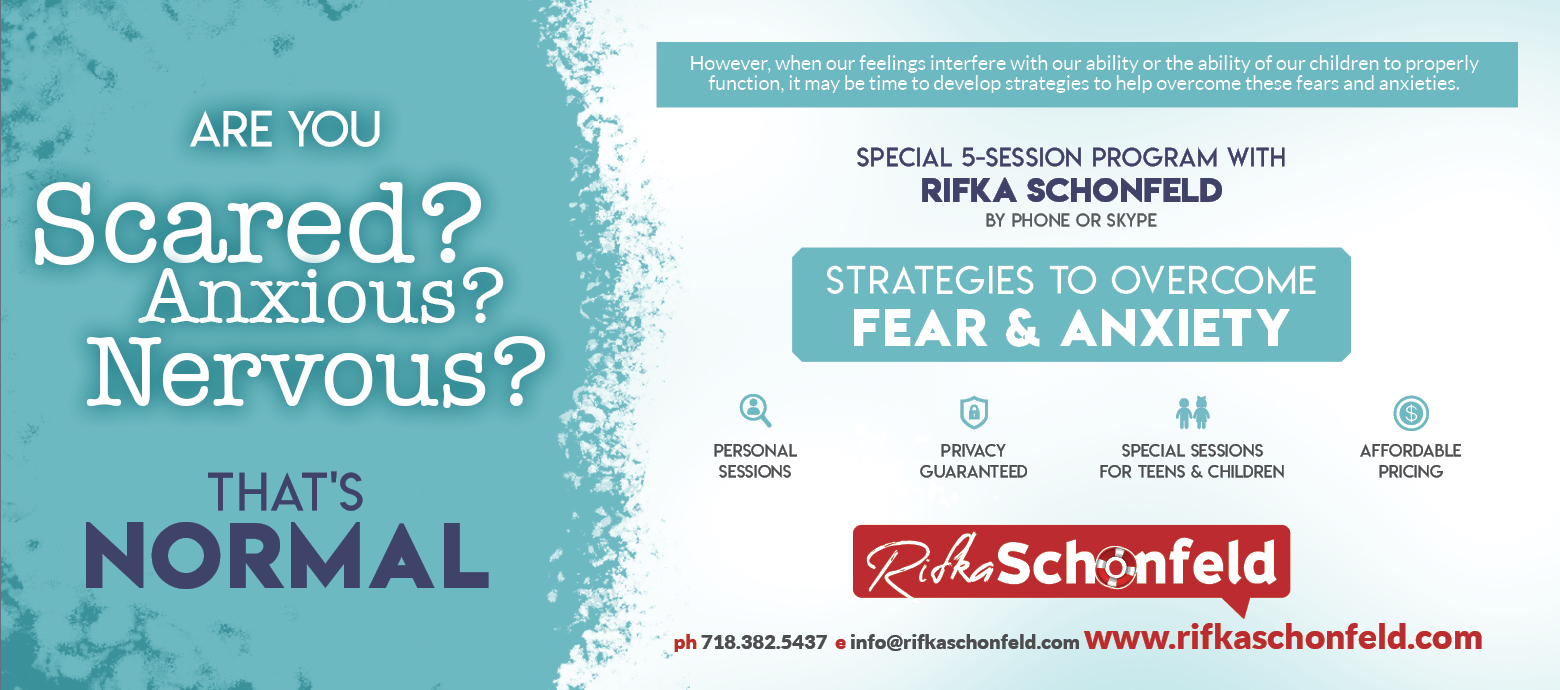How the 5 Stages of Grief Can Help Us Today!
- rifkaschonfeld
- April 5, 2020
- 0 Comments

How the 5 Stages of Grief Can Help Us Today!
In my last email, I wrote about the feelings of anticipatory grief that many of us are feeling – this sense of loss for our futures as they are so uncertain. For many, this anticipatory grief can be interchangeable with anxiety. There has been a lot of research done on grief, and at the forefront are Elizabeth Kubler Ross’s five stages of grief that I wrote about last week. As a reminder they are:
- Denial. We say things like “this can’t be happening,” “this is crazy!” or “can you believe that there’s a pandemic in 2020?
- Anger. We may feel angry at others who are not listening to the social distancing rules or we may feel angry at G-d who has allowed something like this to happen.
- Bargaining. In order to gain some control, we say things like, “If I wash my hands every two hours, then I won’t get the virus” or “If I give a lot of tzedakah, then my father will stay healthy.”
- Depression. We feel sad. We might look back at our lives and try to find some meaning that may feel missing.
- Acceptance. We recognize that this is happening and we have to figure out how to proceed.
It’s also important to understand that the five stages of grief do not go in order! You can feel angry, then be in denial, then feel depressed, then begin to bargain, and then be in denial again. You can also feel acceptance and then return to denial or anger.
So, how can understanding these five stages help us? The key is in acceptance. Obviously, we will vacillate between these five stages, but when we find ourselves in acceptance. That’s the time when we have the power – the power to say, “I can do x. I can do y. I can learn z,” and begin to grow and move forward even within that grief and anxiety.
The goal is not to ignore the anger, bargaining or depression. Instead it is to that instead of thinking about the future (denial, anger, bargaining) or the past (depression), we come into the present. We breathe. We take stock of where we are and what we have. If we are so overwhelmed by anxiety at the moment, we simply look around the room and name the reality. “This is my kitchen. The countertop is smooth and hard. I hear birds singing outside of my window.” In that moment, we are okay. We are not sick. We have food in our fridges and likely our bodies. This coming into the present will help us move away from the anger, denial, bargaining, and depression, and closer towards finding acceptance of the here and now.
Another way to deal with collective loss and anxiety is to stockpile compassion. Instead of judging those around you during these difficult times, recognize that everyone has different levels of grief and anxiety at different times. And everyone shows those different levels in different ways. Think about ways to make their lives easier. This will give you a sense of control over what is ultimately an uncontrollable situation.
Lastly, I would like to encourage everyone through something that I’ve learned the hard way. We will fail in this endeavor to control grief and anxiety in the face of a global pandemic. Keep trying. Name those feelings and those failures and then start again. That’s what it’s all about.



